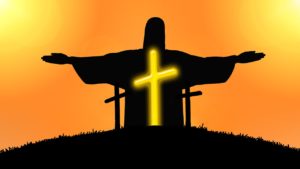 7th Sunday after Trinity St Andrew’s Milngavie 2023
7th Sunday after Trinity St Andrew’s Milngavie 2023
Today we celebrated the seventh Sunday after Trinity accompanied by Abigail.
A big thank you to all who helped and supported Gordon’s funeral on Wednesday. There was a terrific turnout and we all agreed the service was a fitting tribute to such a dear and wonderful friend. We continue to pray for Pamela, Clare, Steve and the family.
This Week
Tuesday – 10am Prayer Group in the Garden Room
Wednesday – 7.30pm Book Group – Jan’s
Thursday 10am – Said Holy Communion followed by coffee in the hall.
Readings for next Sunday – 8th Sunday after Trinity – I Kings 3:5-7 Romans 8:26-29 Matthew 13:31-33,44-52
Today‘s readings – Isaiah 44:6-8, Romans 8:12-25, Matthew 13:24-30,36-43
I was saying in my sermon last week so much of Jesus’ ministry was set in the country. Again, this week in the gospel Jesus tells us about a parable in such a setting and again he uses everyday events to illustrate his point.
The parable is once more about sowing seeds. It’s about two sowers – one who sows good seed to grow wheat, and the other one, the enemy, who sows weeds among the wheat. As in the parable of the sower, Jesus offers an allegorical interpretation to his disciples in private.
But the crowds would have easily been able to relate to this story for weeds were one of the curses which farmers had to cope with. There was one particular one called bearded darnel.
In their early stages these weeds so resembled the wheat that it was impossible to distinguish one from another. But when both had produced seed heads it was easy to distinguish them but by that time their roots were so intertwined separation was therefore impossible.
In his explanation of the parable Jesus says it is “the Son of Man” who sows the good seed and “the field” is the world. But in the field weeds are sown by the evil one. And so, the evil and the good live side by side.
And this is the context of our world and our relationships. The context in which we live and judge each other. Throughout time judgement has been a common theme in human behaviour.
Our media is full of it as we comment, scrutinise and ultimately judge the behaviour of our politicians, news casters, or any public figure. At home we judge our friends, our families and even ourselves.
Not content to confine our judgements to contemporary times the trend now is to delve into our past and judge our ancestors by our standards and values of today. We may wonder how future generations will judge us.
Despite our readiness to judge each other, theological judgement is not something we like to talk about. But it could be said that to ignore Jesus’ teachings on judgement, is to turn our backs on part of the gospel message.
For Jesus refers to judgement many times in the gospels especially in the vivid parables of Lazarus and the Rich Man and the Sheep and the Goats. In John’s gospel Jesus says, “The one who rejects me and does not receive my words has a judge; the word that I have spoken will judge him on the last day”. John 12:48
“Truly, truly, I say to you, an hour is coming, and is now here, ………. when all who are in the tombs will hear his voice and come out, those who have done good to the resurrection of life, and those who have done evil to the resurrection of judgment”. John 5:21-31.
And here today in the parable of the weeds we certainly have the theme of judgement. And it is not only God’s judgement of us, but also how we treat and judge others. It shows us the complexities and the difficulties of judgement as its often hard to distinguish between those who are good and those who are bad because people are rarely all good or all bad.
This parable also teaches us not to be so quick with our judgements. If the reapers had had their way, they would have tried to tear out the darnel and they would have torn out the wheat as well.
Separation had to wait until the harvest came.
In the end we will be judged. Not by a single act or part of our lives but by our whole lives and so judgement cannot come until the end.
No one who sees only part of a situation can judge the whole and nobody who knows only part of an individual’s life can judge the whole person.
Sometimes we may think that people who have seemingly done terrible things and treated others very badly may get away with it and others are perhaps never given their just rewards.
But we must remember –when we think of the injustices and unfairness of this world there is a life to come, there is a new world to redress the balance of the old but the only person who can redress this balance is God.
So, as we think of our world and our lives today, it is God alone who can discern the good and the bad. It is God alone who will judge.
It is God who we trust for the future.
